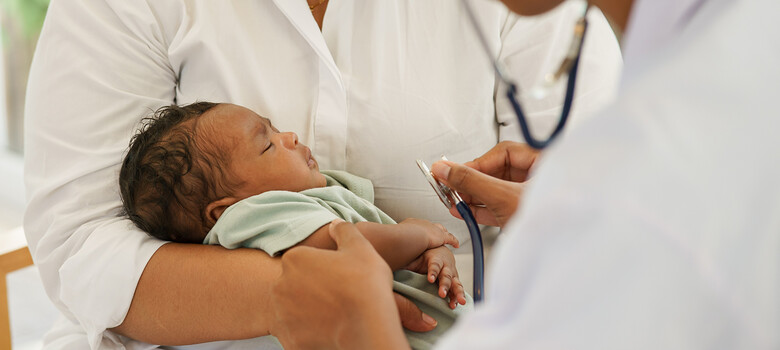 From the DukeHealth.org archives. Content may be out of date.
From the DukeHealth.org archives. Content may be out of date.
Myth or Fact: Should You Wait to Swim After Eating?

You probably recall being told to wait at least 30 minutes after eating before getting back in the pool. Apparently, that's not the case.
The common belief that the blood going to your digestive tract after eating steals the blood needed to keep your arms and legs pumping during swimming is unfounded, says Mark Messick, MD, a family medicine doctor at Duke Primary Care Timberlyne.
According to Dr. Messick, the body does supply extra blood to aid in digestion, but not enough blood to keep your arm and leg muscles from properly functioning. Your biggest danger related to eating and swimming is probably a minor cramp.
Eating-Exercise Connection
Even though this particular example is a myth, the relationship between eating and exercise is important. Knowing when and what to eat can make a difference in how many calories you burn and how effective your workout is.
Elisabetta Politi, RD, nutrition director at the Duke Diet & Fitness Center, gives some tips for how to effectively combine eating and exercise:
- Eat for energy. Two to three hours before exercise, eat a combination of carbohydrates and protein. The carbohydrates will give you energy, and the protein will sustain that energy. Suggested meals or snacks include half a whole wheat bagel topped with peanut butter or a cup of yogurt with fruit.
- Break your fast. If you exercise first thing in the morning, it’s important to break your fast before exercising. When you eat before you workout, you actually fuel your workout and burn calories more effectively. If you can't stomach a big meal, just eat half a banana or a small apple to get your metabolism working.
- Hydrate properly. During your workout, you do not need to consume calories if you are exercising for less than an hour. If your workout is longer than an hour, drink a sports drink with calories or eat a piece of fruit to keep your blood sugar up. Avoid fruit juices and sodas that are high in sugar.
- Make healthy food choices. Remember that just because you work out doesn't mean you can eat whatever you want. Watch your caloric intake and make healthy food choices that support the work you're doing in the gym.





